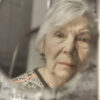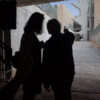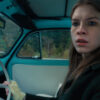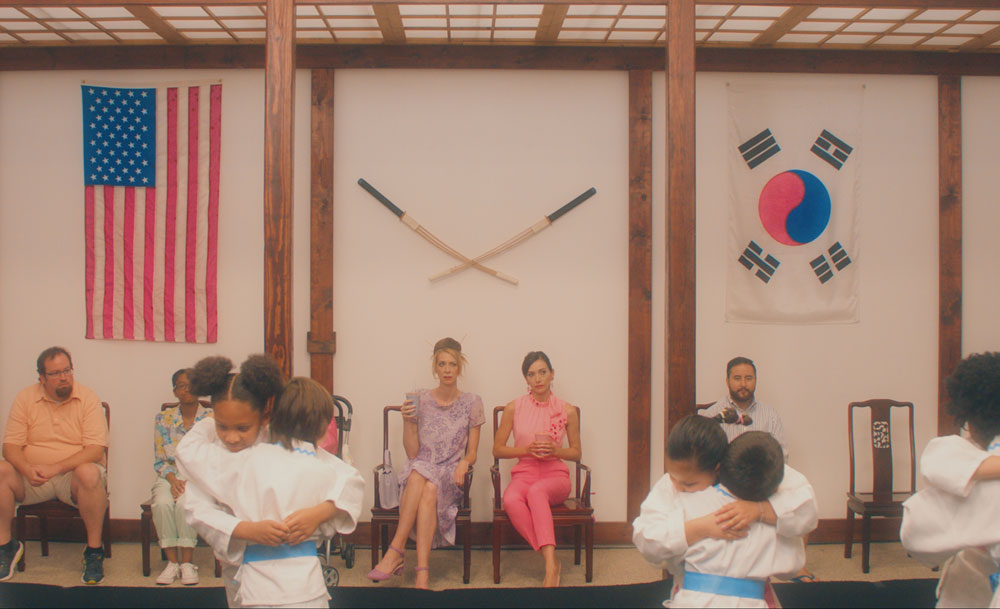If the Talking Heads’ song “Once in a Lifetime” were adapted into a film, it might look a lot like Jocelyn DeBoer and Dawn Luebbe’s “Greener Grass,” a surreal elegy to the life that’s already passed by for a pair of suburban housewives told with pop art sensibilities and a killer hook, becoming an argument against conformity even when its gravitational pull will sure inspire a cult to spring up around it. Although one could suspect DeBoer and Luebbe’s background at the Upright Citizens Brigade might portend a showcase for themselves as comic performers and little more, they prove themselves as full-fledged filmmakers, creating such a cohesive world for the comedy to exist inside that its most absurdist reaches never feel too out there.
This is nothing short of remarkable with a place as bizarre as the one Jill (DeBoer) and Lisa (Luebbe) find themselves in, where everyone in town wears braces despite perfect teeth, yet everything else feels unhinged. The two dutifully follow their respective seven-year-old sons to youth soccer games, karate classes and music recitals and think little of their own happiness unless it’s relative to someone else’s. It’s why there is some degree of logic, however warped, to Jill’s innocent offer to give her newborn daughter Madison to Lisa when the latter laments her recent inability to have another child. As Jill says cheerily in giving over Madison, “Take her. We’ve had her since she was born,” but this act of generosity backfires spectacularly when Lisa proves to be more craven than her friend, with the new baby only serving as something new and shiny to cheer her up as she carries on an unhappy marriage with her husband Dennis (Neil Casey) and driving a wedge within their friendship when Jill starts to want her back.
While a murder of a grocery bagger that has become the talk of the idyllic town gives the film some semblance of a narrative, it becomes a clothesline for DeBoer and Lubbe to explore the anxiety driving Jill and Lisa as they struggle to keep up appearances and offer up one awkward situation after another in which the veneer of polite society is pierced when anyone stops to actually listen to what is being said rather than going through the motions to which they’ve all become accustomed. Mary Holland stands out in more ways than one as KimAnn, the only person in town seemingly with her ear to the ground, having divorced her husband and urging Jill to do the same to shake things up, and her performance is representative of a gifted ensemble that includes Beck Bennett, D’Arcy Carden and Janicza Bravo all committed to selling the reality of the craziness DeBoer and Lubbe have conjured up, nicely exposing the underlying human instincts behind even the most bizarre moments in the film. (Jim Cummings has an especially funny cameo, somehow making a public appearance as the ex of the murderer bagger even more tortured than the one that opens his feature “Thunder Road.”)
To make it all work, DeBoer and Lubbe draw on skilled technicians with as strong a sense of humor as they have, whether it’s Samuel Nobles’ chameleonic score seemingly influenced by everything from sumptuous sonatas of Mozart to nerve-jangling John Carpenter to synth-heavy sitcom music to reflect the range of cultural constructs that Jill and Lisa find themselves falling out of or Lowell A. Meyer’s soft-focus cinematography that seems to suggest such a pristine image can only be achieved with abrasive scrubbing and toxic chemicals. Costume designer Lauren Oppelt also leaves quite an impression with the clever evolution of how she dresses each character, each defined early with a specific color and having the variation in their wardrobe reveal all that’s going on underneath. It’s so clear that such thorough consideration went into every creative choice on “Greener Grass” that it almost becomes part of the joke that those featured in “Greener Grass” have surrendered rational thought by contrast, giving into group delusion that forces parents to applaud unlistenable music at their kids’ recitals or pouring toxic levels of chlorine into their pools on specious evidence of having health benefits. In DeBoer and Lubbe’s hilarious debut, there’s something in the water alright, but thankfully for an audience, it’s only the laughter that’s infectious.
“Greener Grass” will screen at Sundance on February 1st at 6:30 pm at the Ray Theater and February 2nd at 11:45 pm at the Egyptian Theatre in Park City.




